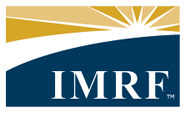IMRF Board Resolution 2020-05-10(a) Defines Separation of Service Requirements for Retirees
May 29, 2020
Revised February 11, 2021
Board Resolution 2020-05-10(a), clarifies the separation of service requirements for IMRF retirees. This resolution interprets pension eligibility requirements in both the Illinois Pension Code and applicable Internal Revenue Service rules, and defines 60 days as an acceptable period of separation from service. These rules will take effect on January 1, 2021 and apply to members who terminate participation on or after January 1, 2021.
Separation of Service is Required to Receive a Pension
In order to qualify for an IMRF pension, retirees must truly separate from the service of all IMRF participating employers. A mere reduction in hours will not qualify an employee to receive an IMRF pension. Members who continue to work for an IMRF employer in any capacity, including as an employee, an independent contractor, or a leased employee, have not truly separated from the service of that employer. When members apply for a pension, they will be required to certify that they no longer provide services for any IMRF employer. Separation from service has always been required by both the Pension Code and the Internal Revenue Code.
Financial Consequences for Retirees
Retirees who have not truly separated from service with all IMRF employers will accrue a prepayment equal to the amount of all pension payments they should not have received. IMRF is required to collect this prepayment from the member. Additionally, retirees under the age of 59½ who have not truly separated from service while drawing a retirement annuity may also be subject to a 10% premature distribution tax penalty. I.R.C. § 72(t). A failure to separate from service may cause a substantial financial impact on a retiree.
Minimum Separation of Service is Required before a Return to Work
Board Resolution 2020-05-10(a) also places additional limits on retirees who seek to return to work for an IMRF employer. Retirees who seek to return to employment of any kind—including work as an independent contractor or leased employee—with any IMRF employer must wait at least 60 days from their retirement date. For example, a member who begins receiving their IMRF retirement annuity on June 1 must wait until at least July 31 before returning to employment of any kind with an IMRF employer.
These Rules Do Not Replace Current Return to Work Rules
These separation of service requirements do not replace the current return to work rules. Employers should always confirm whether a hired employee is an IMRF retiree for return to work purposes. Under the new resolution, prudent employers should also confirm that a hired employee who is an IMRF retiree has retired at least 60 days prior to their return to work date. Retirees should also be aware of the 60-day separation period when returning to work for an IMRF employer.
Prearrangements to return to work in any capacity are prohibited
IMRF employers and members are never allowed to "prearrange" a return to work, even if the prearranged return to work date is more than 60 days after the member retires. For example, an employer may not make an arrangement at the time of a member's retirement for that member to return to work for that employer after retirement. Any member who has agreed, at the time of retirement or within 60 days after, to return to service with an IMRF employer has not truly separated from service. IMRF employers should never agree to rehire or contract with any IMRF employee who begins drawing an IMRF retirement benefit. Doing so places that member’s pension benefits at risk, and may cause financial harm to the member.
Be Cautious When Hiring an IMRF Retiree
Any retiree who returns to work for an IMRF employer is at risk of pension suspension, an accrued prepayment of benefits, and/or reenrollment in IMRF. Refer to the "Hiring IMRF Employees-Caution" page on imrf.org for more information on the additional return to work rules for employers.
Exception for Certain Elected Officials
The 60-day separation of service period and the prearrangement prohibition do not apply to elected positions under certain circumstances. Elected officials and officials appointed to an elected office are not eligible to receive a pension while serving in that office if the member has received IMRF service credit for service in that elected office. Any retiree, however, can be elected or appointed to an elected office and remain eligible for their pension as long as the retiree has never earned service credit for service in that elected office.
Questions
If you have questions about the new separation of service rules or pension eligibility, please contact IMRF General Counsel Beth Janicki Clark at bclark@imrf.org or 630-368-5365.

